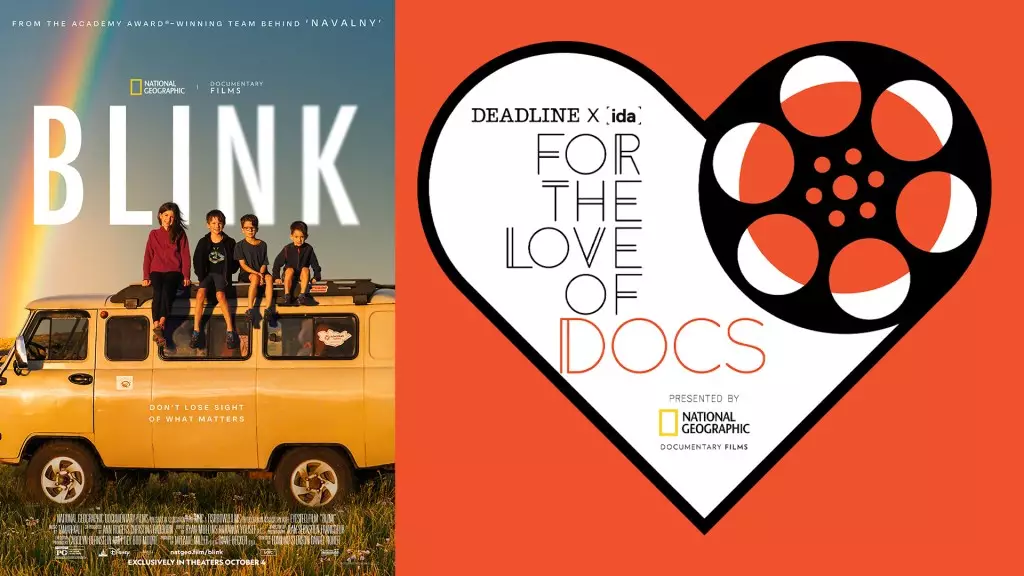In an era where travel is often marked by convenience and speed, the story of Édith Lemay, Sébastien Pelletier, and their four children stands as a poignant reminder of the significance of experiencing life’s vibrant tapestry. With passport stamps from countries ranging from Namibia to Japan, this Montreal family’s travels are fueled by a powerful purpose: to create lasting visual memories for their children, who face the harsh reality of progressive blindness caused by retinitis pigmentosa. Rather than succumbing to despair, Édith and Sébastien chose to fill their children’s memories with a kaleidoscope of experiences, ensuring that their future reality will be woven from adventure and exploration rather than bleakness.
The family, with children Mia (11), Léo (9), Colin (6), and Laurent (4), embarked on their journeys with the goal of transforming their children’s limited visual experience into a rich tapestry of memories that they can treasure. This unique starting point serves as the bedrock for the National Geographic documentary Blink, crafted under the insightful direction of Edmund Stenson and Oscar-winning filmmaker Daniel Roher.
The documentary captures the essence of family trips while threading through the emotional nuances of raising children in such a profound context. Reflecting on the filmmakers’ approach, Stenson emphasized their intent to present a narrative that resonates on an emotional level, allowing the audience to step into the children’s perspective. By maintaining a small crew, they could navigate challenging terrains more efficiently and record genuine moments unfiltered by excess equipment.
In a world saturated with overstimulation, the idea of allowing the children to drive the travel itinerary becomes not just a generous gesture, but an enlightening one. Édith mentioned that they didn’t impose limitations, encouraging their kids to voice their desires freely. From chasing Pokémon in Japan to sipping juice on camels in the Gobi Desert, each choice reflected their interests, making each moment uniquely theirs.
The implication here goes beyond mere adventure; it highlights a parenting philosophy that values autonomy and exploration. This approach instills resilience in children and allows them to cultivate critical thinking skills. It contrasts starkly with contemporary trends of helicopter parenting, which often stifle children’s innate abilities.
Roher’s departure from the project due to personal commitments underscores a relatable reality—many parents juggle multiple responsibilities while trying to remain true to their creative passions. His admiration for Lemay and Pelletier’s parenting brings forth a perspective that celebrates independence and risk-taking in children. Roher sees their parenting as a refreshing rebellion against the societal norm that tends to overly shelter children, thereby compromising their opportunity for self-discovery.
Stenson’s insight on the unpredictable nature of children’s narratives enriches the documentary’s storytelling. The chaos and spontaneity that children bring have a unique strength; they can generate moments that are astonishing and unforgettable. The filmmakers embraced these seemingly disruptive qualities, understanding that they are pivotal in creating a documentary that is relatable and heartwarming.
As Blink prepares for its premiere on December 16 on National Geographic, followed by availability on Disney+ and Hulu, it promises not just to showcase breathtaking landscapes and thrilling adventures but to resonate with audiences on a deeper emotional level. The broader implications of the family’s journey extend beyond their experience—they challenge viewers to reconsider their own parenting styles and how they interact with the natural world.
By inviting audiences into their lives, the Lemay-Pelletier family, along with the filmmakers, leaves us pondering our connections with loved ones and the legacies we choose to create. In a world where challenges are inevitable, they present a model of how to face adversity not with despair, but with a commitment to joy, exploration, and lasting memories. The documentary Blink serves as both a celebration of life and a compelling call to action—to embrace adventure, regardless of the circumstances, and to allow our children the freedom to navigate their own paths.
